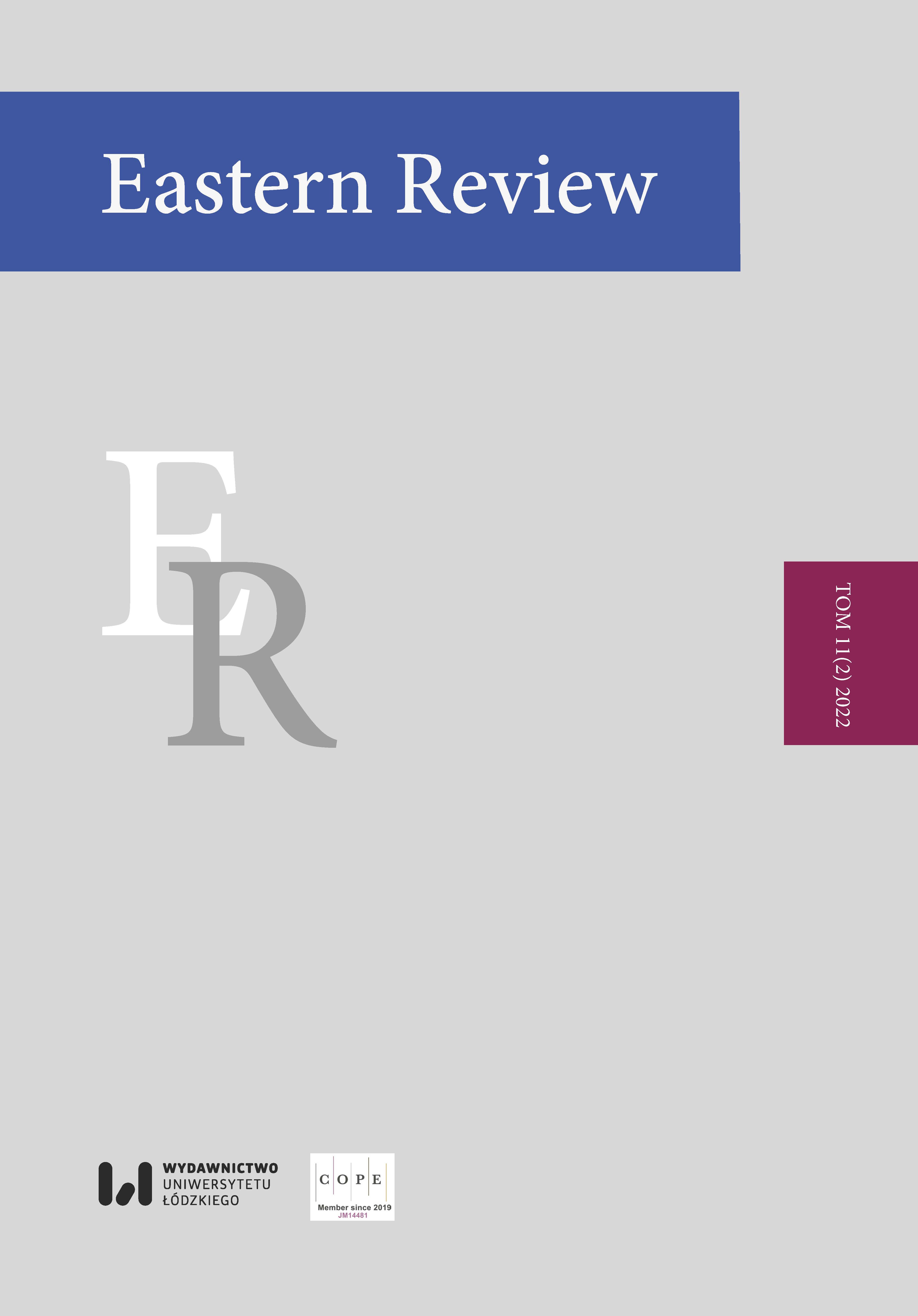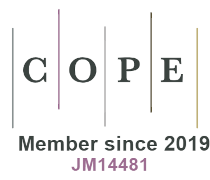Comparison of the legal situation of LGBT+ people in Poland and Spain in the years 1930–2021
DOI:
https://doi.org/10.18778/1427-9657.11.14Keywords:
Homosexuality, LGBT, human rights, legal situation, Spain, PolandAbstract
The subject of the article is the comparison of the legal situation of LGBT+ people in Poland and Spain. Although both countries are members of the European Union, the legal situation in both countries is completely different. Spain is recognized as one of the most culturally liberal and LGBT-friendly countries in the world, and LGBT+ culture has played a significant role in Spanish literature, music, cinema and other forms of entertainment, as well as in social issues and politics. In polls on homosexuality, Spanish public opinion is judged to be “overwhelmingly positive” and society has accepted homosexuality, making it the most LGBT+-friendly. LGBT+ visibility has also increased in several layers of the society, such as the military, the judiciary and the clergy.
The situation in Poland is definitely different. Homosexual persons in Poland face legal challenges that are not faced by other Polish citizens, non-LGBT+ persons. According to the ILGA-Europe report from 2021, the state of LGBT+ rights in Poland is the worst among the European Union countries. In principle, sexual activity of both men and women of the same sex has been legal in Poland since 1932, when the country introduced an equal age of sexual consent for homosexuals and heterosexuals. In theory, Poland provides LGBT+ people with the same rights as heterosexual people in some areas: gay and bisexual men can donate blood, gay bisexual people can openly serve in the Polish Armed Forces, and transgender people can change their legal gender after meeting certain requirements. Polish law prohibits discrimination in employment on the basis of sexual orientation. However, there are no safeguards for health care, hate crimes and hate speech. In 2019, the Constitutional Tribunal ruled that the provision of the Polish Code of Petty Offenses, which prohibits refusal to receive goods and services without “just causa”, is inconsistent with the Constitution. There are no same-sex partnerships in Poland and it is not possible to adopt children. LGBT+ people are not well perceived and are the subject of mockery and jokes.
The aim of the work is therefore an attempt to analyze and compare the situation of LGBT+ people in Poland and Spain. The author raised the following research questions: has the situation of LGBT+ people in Spain changed in the period after the adoption of the Spanish Constitution in 1931 and the introduction of the new Penal Code? Has the situation of LGBT people in Poland changed in the same period and to what extent? What is the legal situation and perception of LGBT+ people in Spain and in Poland? The author also made an attempt to explain what these differences may be caused by.
The aim of the work was achieved through the study of literature since the years 1930–2021, the analysis of documents. Due to the fact that the topic is still up-to-date, in my work I used scientific articles, books, but also information provided on websites, legal acts, I used the official websites of non-governmental organizations and associations.
References
Annual review of the human rights situation of lesbian, gay, bisexual, trans and intersex people in Europe and Central Asia. 2022, http://www.rainbow-europe.org (dostęp 2023).
Google Scholar
Biuletyn Informacji Publicznej RPO. Nieuregulowanie związków jednopłciowych w Polsce narusza ochronę prawa do życia prywatnego. Stanowisko RPO do EPTC (dostęp 27.10.2020).
Google Scholar
Biuletyn Informacji Publicznej RPO. RPO do TK: karanie za bezzasadną odmowę usługi jest zgodne z konstytucją, 3.04.2018, https://bip.brpo.gov.pl/pl/content/rpo-do-tk-karanie-za-bezzasadn%C4%85-odmow%C4%99-us%C5%82ugi-jest-zgodne-z-konstytucj%C4%85.
Google Scholar
Biuletyn Rzecznika Praw Obywatelskich. 2014. Równe traktowanie pacjentów – osoby nieheteroseksualne w opiece zdrowotnej. Nr 7. Zasada równego traktowania. Prawo i praktyka. Nr 14. Warszawa: Wydawnictwo: Biuro Rzecznika Praw Obywatelskich.
Google Scholar
Biuletyn Rzecznika Praw Obywatelskich. 2019. Sytuacja prawna osób nieheteroseksualnych i transpłciowych w Polsce. Międzynarodowy standard ochrony praw człowieka osób LGBT i stan jego przestrzegania z perspektywy Rzecznika Praw Obywatelskich. Nr 6. Zasada Równego Traktowania. Prawo i praktyka. Nr 27. Warszawa: Wydawnictwo: Biuro Rzecznika Praw Obywatelskich.
Google Scholar
Business Insider. Polscy aktywiści kontra strefy wolne od LGBT, https://businessinsider.com.pl/wiadomosci/polscy-aktywisci-kontra-tzw-strefy-wolne-od-lgbt/syw4dz8 (dostęp 5.12.2021).
Google Scholar
Calvo Borobia, K., Trujillo, G. 2011. Fighting for love rights: Claims and strategies of the LGBT movement in Spain. Sexualities 14(5), s. 562–579. https://doi.org/10.1177/1363460711415330
Google Scholar
DOI: https://doi.org/10.1177/1363460711415330
Ciastoch, M. 2020. Polska najbardziej homofobicznym krajem Unii Europejskiej, https://noizz.pl/lgbt/polska-najbardziej-homofobicznym-krajem-w-ue-ranking-i-mapa-ilga-2020-dotyczacy-lgbt/219919h (dostęp 17.05.2021).
Google Scholar
Deon.pl. 2019. Hiszpania: rekordowo niska liczba katolików, https://deon.pl/kosciol/hiszpania-rekordowo-niska-liczba-katolikow,502947 (dostęp 15.12.2018).
Google Scholar
DOI: https://doi.org/10.3390/a12060114
Dziennik Gazeta Prawna. 2020. Zakaz adopcji dzieci przez pary jednopłciowe. Duda podpisał projekt zmiany konstytucji, https://www.gazetaprawna.pl/wiadomosci/artykuly/1485373,zakaz-adopcji-dzieci-przez-pary-jednoplciowe-projekt-zmiany-konstytucji.html (dostęp 6.07.2020).
Google Scholar
Encarnacion, O.G. 2020. Memory in Politics in Democratics Spain. W: D. Muro, I. Lago (red.). The Oxford Handbook of Spanish Politics. Oxford: Oxford University Press, s. 47–61. https://doi.org/10.1093/oxfordhb/9780198826934.013.4
Google Scholar
DOI: https://doi.org/10.1093/oxfordhb/9780198826934.013.4
The Guardian. 2001. Gays persecuted by Franco lose criminal status at last, https://www.theguardian.com/world/2001/dec/13/gayrights.gilestremlett (dostęp 13.12.2001).
Google Scholar
Haggerty, G.E., Zimmerman, B. 1999. Encyclopedia of Lesbian and Gay Histories and Cultures. New York: Taylor & Francis.
Google Scholar
Kamen, H. 1998. The Spanish Inquisition: a historical revision. New Haven and London: Yale University Press. https://archive.org/details/spanishinquisiti00henr. Free Download, Borrow, and Streaming: Internet Archive.
Google Scholar
Kampania Przeciw Homofobii. 2020. https://kph.org.pl/minister-ziobro-wykorzystuje-dzieci-aby-realizowac-homofobiczna-wizje-polski-oswiadczenie-kph (dostęp 11.03.2021).
Google Scholar
Martinez, O., Dodge, B. 2010. El barrio de La Chueca of Madrid, Spain: An emerging epicenter of the global LGBT civil rights movement. Journal of Homosexuality 57(2), s. 226–248. https://doi.org/10.1080/00918360903488913
Google Scholar
DOI: https://doi.org/10.1080/00918360903488913
Ministerio de Asuntos Exteriores y de Cooperación. 2011. https://www.exteriores.gob.es/es/Ministerio/HistoriaDelMinisterio/Paginas/Ministros-de-Asuntos-Exteriores.aspx.
Google Scholar
Pluralidad. 2021. “Conoces la campaña Yo soy tú, mézclate”? Viernes 26.03, https://www.mezclate.es/2021/03/conoces-la-campana-yo-soy-tu-mezclate.html
Google Scholar
Portalstatystyczny. 2022. https://portalstatystyczny.pl/kosciol-katolicki-w-polsce-spada-religijnosc-wsrod-mlodych-osob/ (dostęp 5.11.2022).
Google Scholar
QUER.pl Portal osób LGBT+, https://queer.pl/news/205683/zbigniew-ziobro-chce-obalic-historyczny-polski-wyrok-o-ochronie-praw-osob-transplciowych (dostęp 1.07.2021).
Google Scholar
Rainbow Europe ranking. 2022. Poland the is the most homophobic country in EU, https://tvn24.pl/tvn24-news-in-english/poland-ranks-as-the-worst-country-for-lgbti-people-in-eu-ilga-europe-5710294 (dostęp 5.11.2022).
Google Scholar
Raport Kampanii Przeciw Homofobii 2019–2020. Sytuacja społeczna osób LGBTA w Polsce, https://kph.org.pl/polish-governments-policies-are-ruining-the-lives-of-lgbt-people-we-are-publishing-the-report-on-the-social-situation-of-lgbta-people-in-poland-in-the-years-2019-2020/ (dostęp 8.12.2021).
Google Scholar
Selerowicz, A. 1993. Leksykon kochających inaczej. Poznań: Softpress.
Google Scholar
Skrzypek, P. 2019. Sytuacja prawna osób LGBT w Polsce. W: M. Bogusz, M. Wojcieszak, P. Rachwał (red.). Poszerzamy horyzonty. T. XIV. Słupsk.
Google Scholar
Skrzypek, P. 2020. Sytuacja prawna osób LGBT w Hiszpanii jako wynik zmian społeczno-politycznych. W: M. Bogusz, M. Wojcieszak, P. Rachwał (red.). Poszerzamy horyzonty. T. XVIII. Cz. 2. Słupsk.
Google Scholar
Social Research Center CIS (May 2011) in Ministerio de Asuntos Exteriores y de Cooperación. Spain LGBT good practices, s. 1, https://www.ohchr.org/sites/default/files/Documents/Issues/Discrimination/LGBT/Res_27_32/Spain.pdf
Google Scholar
Spencer, C. 1996. Homosexuality: A History. Londres: Fourth Estate.
Google Scholar
Thompson, E.A. 2007. Los Godos en España. Alianza Editorial.
Google Scholar
Tomasik, K. 2018. Gejerel. Mniejszości seksualne w PRL-u. Warszawa: Wydawnictwo Krytyki Politycznej.
Google Scholar
Wystąpienia Rzecznika Praw Obywatelskich do Ministra Edukacji Narodowej z dnia: 3 lipca 2012 r. (RPO-690507-I/11), 24 kwietnia 2014 r. (I.800.1.2014), 17 marca 2016 r. (XI.800.15.2016), 22 października 2019 r. (XI.800.3.2017).
Google Scholar
Downloads
Published
Versions
- 2024-02-07 (2)
- 2023-12-30 (1)
How to Cite
Issue
Section
License

This work is licensed under a Creative Commons Attribution-NonCommercial-NoDerivatives 4.0 International License.










